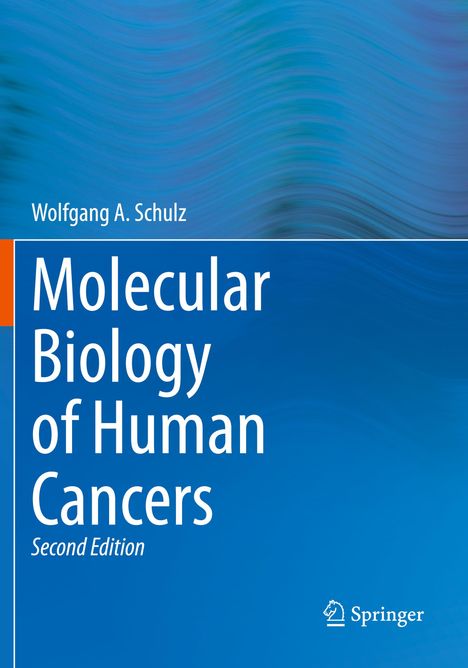Wolfgang A. Schulz: Molecular Biology of Human Cancers
Molecular Biology of Human Cancers
Buch
- Verlag:
- Springer International Publishing, 03/2024
- Einband:
- Kartoniert / Broschiert, Paperback
- Sprache:
- Englisch
- ISBN-13:
- 9783031162886
- Artikelnummer:
- 11788194
- Umfang:
- 564 Seiten
- Nummer der Auflage:
- 24002
- Auflage:
- Second Edition 2023
- Gewicht:
- 1174 g
- Maße:
- 254 x 178 mm
- Stärke:
- 29 mm
- Artikelnummer:
- 11788194
- Erscheinungstermin:
- 2.3.2024
- Hinweis
-
Achtung: Artikel ist nicht in deutscher Sprache!
Weitere Ausgaben von Molecular Biology of Human Cancers |
Preis |
|---|
Klappentext
This textbook describes the most relevant molecular and biological processes in cancer, how they contribute to the development and progression of individual cancer types in humans, and how insights from molecular cancer research can be applied to improve cancer prevention, diagnostics and treatment.Part I of the textbook summarizes the current fundamental knowledge on the general properties of cancers, the causes of cancer, cancer genetics, genomics and epigenetics. Individual chapters address the functions of DNA damage and repair, oncogenes and tumor suppressors in carcinogenesis and discuss crucial mechanisms in cancer pathogenesis, such as apoptosis and replicative senescence, as well as the most relevant signal transduction pathways and regulatory networks. Part I concludes with a chapter on tumor invasion and metastasis and tumor immunology. In Part II, the most relevant mechanisms acting in individual human cancers (and subtypes) are described in more detail. This central part of the book contains individual sections on the most common human cancers highlighting the diversity in their genetic, molecular and cellular pathogenic mechanisms. How insights from molecular cancer research are translated into improvements in prevention, diagnosis, and treatment is outlined in Part III.
This new edition has been extensively revised and includes in particular updated information on cancer genomics, epigenetics, viral carcinogenesis, cancer diagnostics and cancer therapy and a new chapter on lung cancers.
Now more than ever, cancer research is an interdisciplinary endeavor that requires a basic knowledge of commonly used terms, facts and concepts. The aim of this book is to provide advanced students and practitioners in various disciplines with this foundation, bridging the gap between standard textbooks of molecular biology, pathology and oncology on the one hand and the specialized cancer literature on the other.


